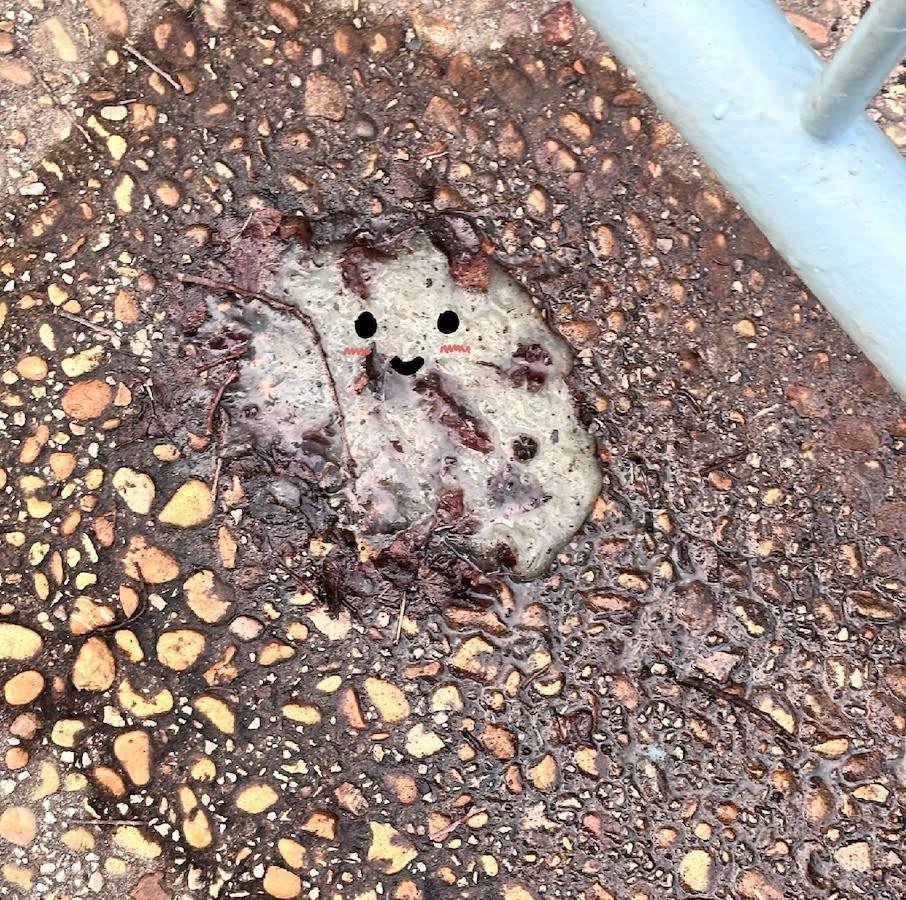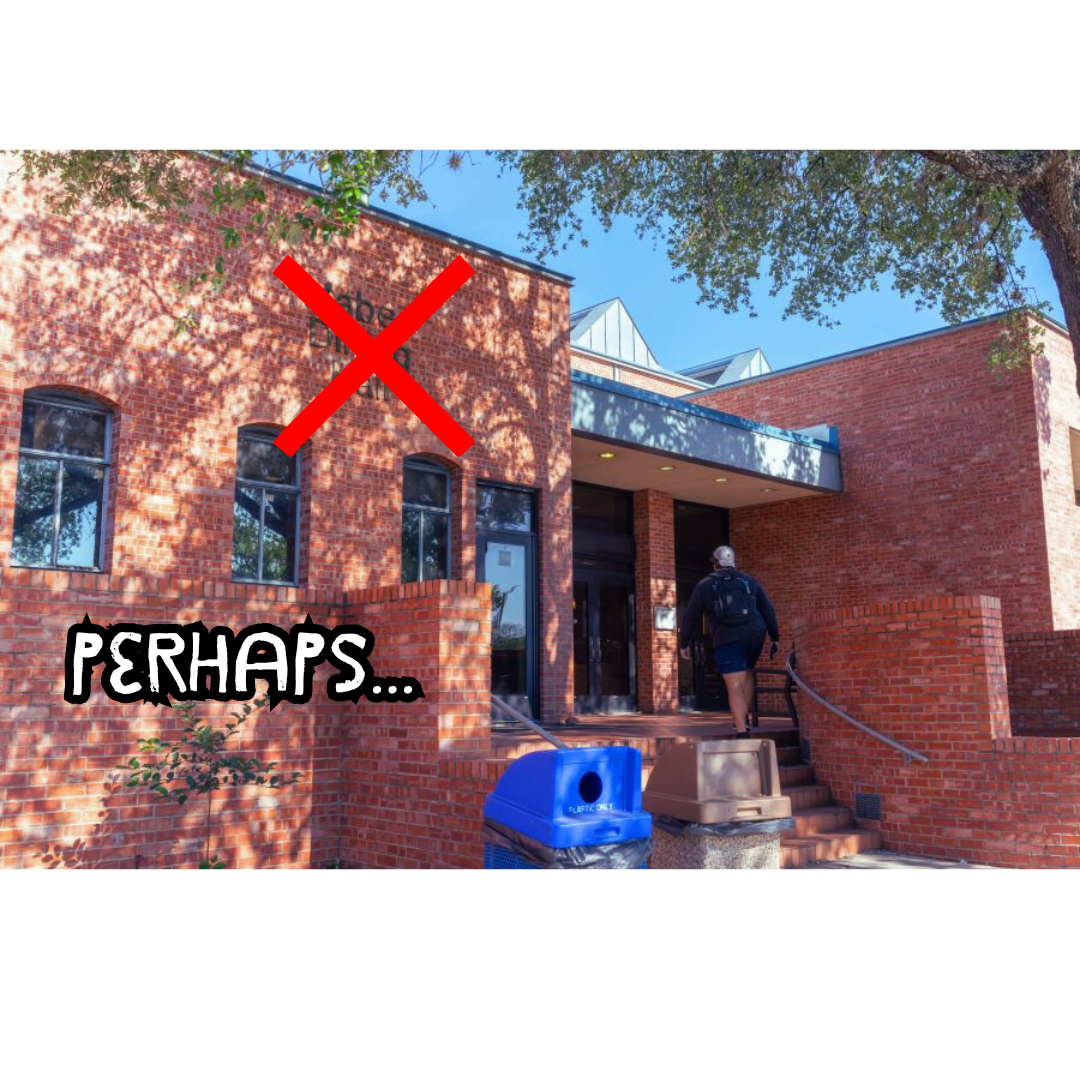Past and current Trinity University students have expressed skepticism regarding the university’s recycling program, which is symptomatic of a larger sustainability issue on campus.
Jade Humphrey, sophomore political science and sociology double-major and vice president of Eco-Allies, said campus recycling is an important issue for her. While she recycles, campus rumors have discouraged many of her peers from making the effort.
“I’ve had friends or people a year above me who have told me, ‘Oh, we don’t recycle, did you know that?’ And that was my turning point,” Humphrey said. “I was like, ‘Wait, what do you mean the school doesn’t recycle?’”
According to a Trinitonian article from two years ago, this rumor is nothing new.
“[Some students] don’t believe the system works and even report seeing bags of recycling thrown into garbage trucks,” said then-junior Grace Mcgavern in a guest column published on Oct. 13, 2022.
Yet, Gregory Hazleton, director of environmental studies, said recycling should be a priority for students. He emphasized that recycling has many benefits beyond reducing the use of raw materials and saving energy.
“With the amount of seemingly bad environmental news, it is important to take action so that you feel as though you have agency for your own actions,” Hazleton said.
Despite reaching out to facility services members and using the provided emails for questions, the Trinitonian has yet to receive a response to information inquiries. Thus, current information comes from resources last updated in 2022.
Trinity’s sustainability website states, “The Director of Campus Planning and Sustainability and Sustainability Committee work together to also incorporate sustainability into the university’s buildings and everyday practices for a better present and future.” However, this information is inaccurate.
A separate position, the director of sustainability, was combined with the role of campus architect in 2022. Currently, the role of campus architect is open, leaving sustainability without designated oversight.
Furthermore, Trinity’s web page lacks specifics regarding campus recycling: “Trinity University manages a source-separated recycling program for mixed paper, bottles and cans (plastic and metal) and corrugated cardboard in most campus facilities.” Linked to this statement is a Google Drive with additional information.
Notably, the most thorough and up-to-date information in this Google Drive comes from a 2022 Eco-Allies presentation on waste management. This presentation echoes the web page statement but includes that as of March 2022, only one staff member picked up recycling and the current recycling rate was below 10%.
With this information and lack of response from the concerned parties, students, faculty and staff have not received a definitive answer to how campus recycling operates. Hazleton said that despite these conditions, Trinity has the chance to become a leader in sustainable change.
“[As] an educational institute, a place that people look to as trying to provide examples of best practices, we can be educators not just to ourselves but to people around, at other institutions and in the community,” Hazleton said. “If there is institutional change at this level then there can be institutional changes at larger institutions. Because institutions at the end of the day are made up of people, so if we are doing what we need to do and we are watching out for it, the institutions will change.”
In agreement, Humphrey said that this issue goes beyond saving energy and raw materials. She said the action of recycling can mobilize her fellow students for bigger challenges.
“Getting more people involved in smaller issues can get them involved in bigger issues that will ultimately help us more in the long run, especially with this younger generation,” Humphrey said. “I think the problem is just us knowing that what we’re doing is actually beneficial and is actually doing something. So I think if we get that clarification that, yes, what we’re doing is helping, and we’re taking part and the system is actually working, that would be really beneficial to students.”
As Trinity continues to rise in national recognition, increased comparison to other small liberal arts universities is to be expected. To meet the sustainability standards set by these universities, change can be made at the grass-roots level. Hazleton said he encourages these calls for change.
“For Trinity to really turn a corner and be super sustainable, it’s going to take the people on the ground, which are students, faculty and staff, saying these are the things we want,” Hazleton said. “And if individuals are saying it, it’s one thing, if organizations are saying it, that’s a totally other thing.”











Ruth • Sep 30, 2024 at 4:46 pm
For me, this article seems to miss a larger question about whether recycling is really that effective in the first place. Certainly, on a small scale, the reusing and recycling of paper and glass products is a noble goal. But to pin our hopes of environmental action on something as small and individual as recycling seems naive, especially considering recycling’s support from the plastics industry as a pressure-release valve to make Americans feel okay with the massive amounts of forever waste we produce. If we want to talk about Trinity’s shady environmental impacts, why are we talking about recycling when we could be talking about the fossil fuel investments that make up the university’s endowment and the persistent pushback by the administration to take that seriously as a moral failing?